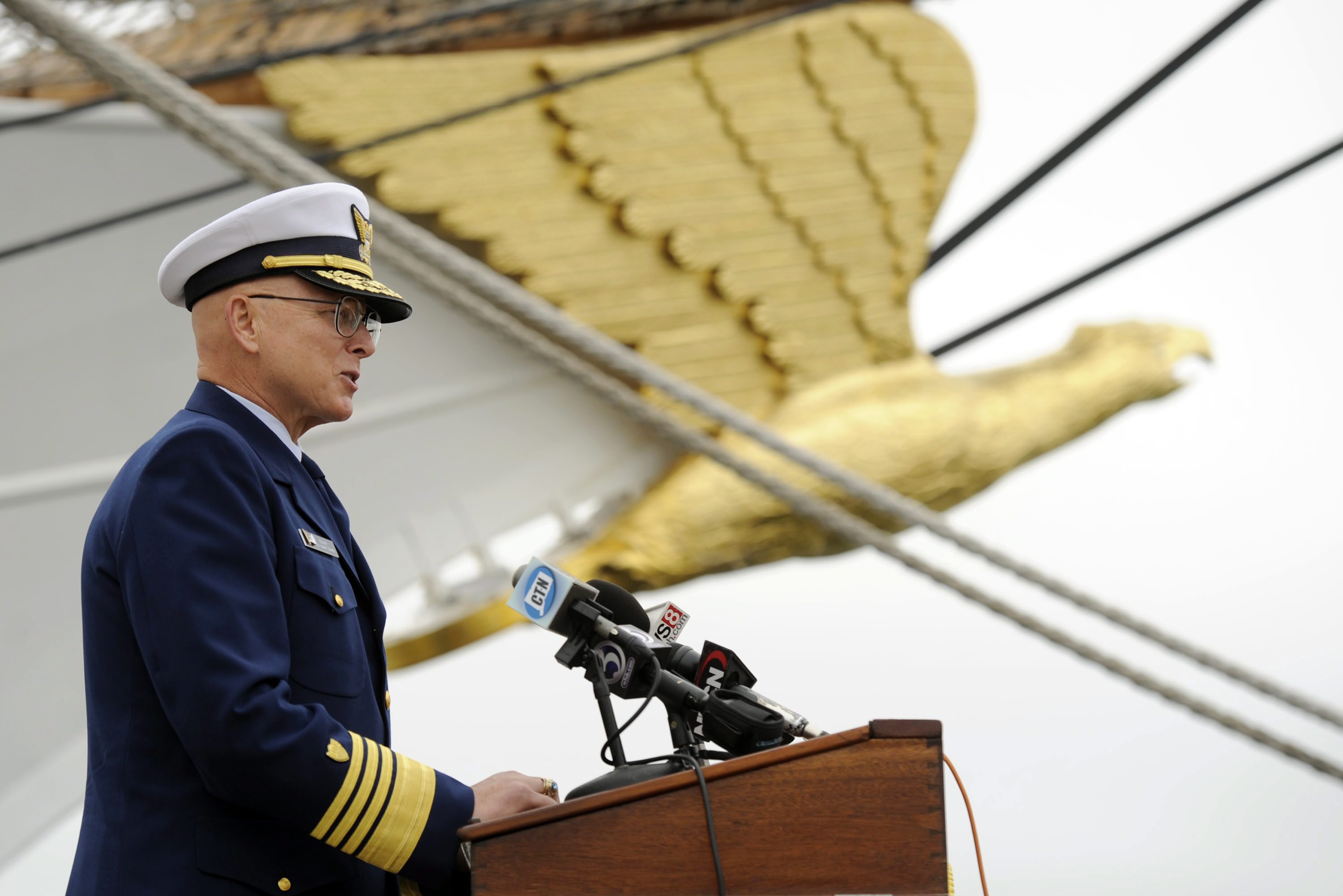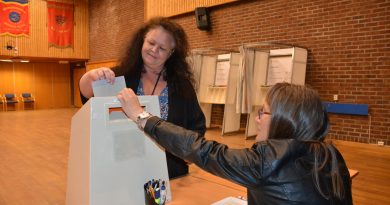Big changes in Far North since US last chaired Arctic Council

When the United States last led the eight-nation Arctic Council, September sea ice still covered about 2.3 million square miles, Royal Dutch Shell had just judged its Alaska business to be inconsequential and pulled out of the state, and few people in lower latitudes appeared to give much thought to the Arctic.
Now, with the U.S. on the verge of chairing the council for a second two-year stint, the Arctic is hot.
Sea ice has continued its summer and fall downward spiral, hitting a record low of 1.3 million square miles in September 2012. Air temperatures in the Arctic have warmed steadily since 2000, as have temperatures of the permafrost beneath the ground’s surface. Shell and other oil companies now have several billion dollars at stake in offshore Arctic drilling projects. Cargo ships are sailing the previously impassable Northern Sea Route andNorthwest Passage.
And the number of non-Arctic countries with official status in the council has grown to 12, including Asian economic powerhouses China, India and Singapore.
‘World is paying more attention’
Much has changed in the Arctic world since the late 1990s, said former Alaska Lt. Gov. Fran Ulmer, who was also the state’s Arctic liaison then.
“The whole world is paying a lot more attention to the Arctic,” said Ulmer, now chairwoman of the U.S. Arctic Research Commission and the newly named special arctic adviser to Secretary of State John Kerry.
Ulmer spoke Wednesday at the Alaska Forum on the Environment in Anchorage. She said it’s logical that many non-Arctic nations care about the Arctic.
“They are interested because this place has potential oil and gas resources,” she said.
Shipping is also a major draw, she said. “That’s why Singapore cares.”
In her presentation, Ulmer outlined the operations of the council and the goals for the two-year U.S. chairmanship, which starts later this year.
‘One Arctic’
Retired U.S. Coast Guard Adm. Robert Papp, recently named special U.S. Arctic representative, will head the U.S. leadership, Ulmer said. It’s likely that David Balton, deputy assistant secretary of state for oceans and fisheries, will be chairman of the council’s senior Arctic officials, she said. “He’s very knowledgeable about the things that really, really matter to the people of the Arctic.”
The officials planning leadership of the council have chosen a theme, Ulmer said: “One Arctic — shared opportunities, challenges and responsibilities.”
That encompasses “safety, security and stewardship” of the Arctic Ocean, responding to climate change, and improving the economic and living conditions of the people of the region. U.S. leadership does not mean imposition of any programs, however, Ulmer said. The council is a consensus-based organization, and the U.S. will have to negotiate with other members.
Craig Fleener — who, like Ulmer before him, is the state government’s liaison for Arctic issues — said Alaska’s role with the Arctic Council will go far beyond the two years of U.S. leadership.
One goal is to elevate Alaska’s international profile, he said at the forum Wednesday. “We want to educate the state, we want to educate the nation and we want to educate the world that Alaska is the Arctic,” said Fleener, who was appointed as the governor’s adviser on Arctic issues.
The Walker administration is interested in shoring up international relations in other areas, Fleener said.
The state will rejoin the Northern Forum, a regional-government group that had atrophied in past years. Among the big issues to be pursued with regional governments is cross-border travel by indigenous people. People living along the borders are having “a tough time getting across the border to see our cousins,” said Fleener, who is Gwich’in Athabascan.
Another Arctic-related goal is to seek new ways to adapt to climate change, Fleener said. Changing rules and regulations can be one way to adapt, he said.
“If the caribou herd doesn’t come this week and you only have one week that you’re allowed to hunt, you don’t have adequate adaptation,” he said.
Related stories from around the North:
Canada: Arctic Council: The evolving role of regions in Arctic governance, Blog by Heather Exner-Pirot
Finland: US seeks Finnish support for Arctic goals, Yle News
Greenland: Greenland urged to work with Arctic Council, CBC News
Iceland: Iceland conference draws on hopes, concerns for changing Arctic, Alaska Dispatch
Norway: Permanent Arctic Council Secretariat opens in Tromso, Blog by Mia Bennett
Russia: The Arctic Council’s Immunity to Crimean Flu, Blog by Heather Exner-Pirot
Sweden: Russia still open for cooperation in the Arctic, Radio Sweden
United Kingdom: The British Invasion – The Arctic Circle and observer states, Blog by Heather Exner-Pirot
United States: Alaska should seize Arctic opportunities, commission report says, Alaska Dispatch



